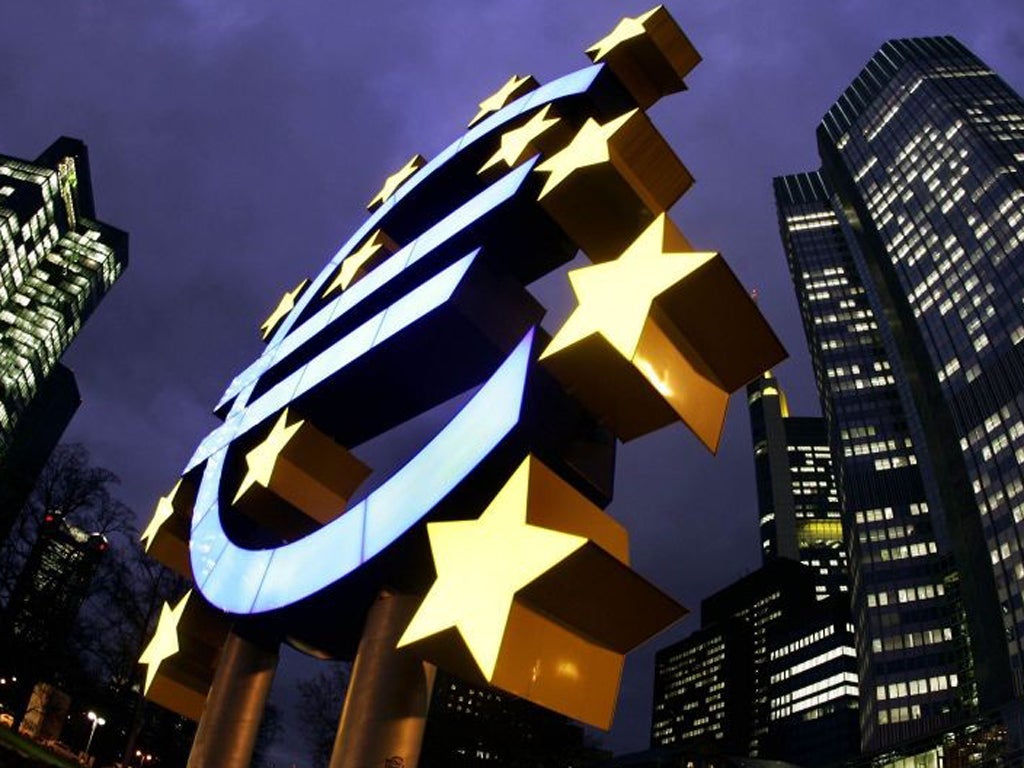Is investment Europe the next smart play?
Despite the eurozone crisis, this could be the time to think about investing in our continental neighbours

Maybe, just maybe, the eurozone is starting to get its act together. In recent weeks, the European Central Bank has said it is willing to buy an almost unlimited amount of government debt, the German constitutional court has given a bailout for the likes of Greece the green light, and markets are seemingly willing to lend again.
Of course, in the big scheme of things these are only little twists and turns in the plot, rather than a major rewrite. But the key to successful investing is spotting and backing the winner early, recognising a turn of the tide. Could this be such a moment? Could investing in European markets, so long the Cinderella option, now be the smart play?
Regardless of the travails of Greece, Portugal, Spain and Italy one thing has not altered during the eurozone crisis: Europe is chock full of huge brands and great companies, which pay dividends.
"There are lots of good companies in Europe so, even throughout the turmoil of the last few years, fund managers who have found the stocks which can grow regardless have done extremely well for their investors," Darius McDermott, managing director of Chelsea Financial Services, said. "For example, the average fund in the Europe ex-UK sector has returned 10 per cent over three years and 20 per cent over one year. That's not a shabby performance with inflation at 2.5 per cent."
Undoubtedly, the wrecking ball of the eurozone crisis has affected some companies indiscriminately, making the sector a potential source of undervalued stocks.
"Of course, when things are tough, it can often be a shrewd time to invest, providing you have a reasonably long time horizon," Jason Hollands, director at Bestinvest said. "The problems facing the eurozone are formidable but these markets also include many good companies, with global business models, who have been hit almost discriminately."
The make-up of the German Dax indicates the scale of eurozone brands – Adidas, BMW, E.ON, SAP, Siemens and Volkswagen are some of the big, profit-making names that jump out.
The German economic engine may be spluttering but it hasn't stalled and, crucially, the country's big companies do fantastic business with the emerging BRIC (Brazil, Russia, India and China) economies.
As for France, BNP Paribas, Carrefour, France Télécom, L'Oréal and Vivendi are real heavy-hitters, showing that the "old Europe" is far from dead yet. What's more, big European companies which have so long lagged behind the UK in paying dividends are keener than ever to keep their investors sweet with the average yield on a Euro Stoxx 50 share – the index of the continent's biggest firms – standing at 3.75 per cent.
Get a free fractional share worth up to £100.
Capital at risk.
Terms and conditions apply.
ADVERTISEMENT
Get a free fractional share worth up to £100.
Capital at risk.
Terms and conditions apply.
ADVERTISEMENT
But the spectre of a possible euro break-up still hangs over the sector.
"When uncertainty persists, markets often struggle, and, unsurprisingly, investors are largely avoiding the area. Europe remains deeply unpopular with UK investors," Danny Cox of independent financial advice firm Hargreaves Lansdown said.
However, there are some star fund managers working in the sector.
Mr McDermott likes the BlackRock Continental Europe and Continental Europe Income funds: "BlackRock has a strong European team and they have recently refined their process to take account of the continued turmoil, which I think is reassuring," he said.
In the European smaller companies sector, Mr McDermott is a fan of the Threadneedle fund run by David Dudding. Mr Hollands also likes the BlackRock and Threadneedle funds but adds the Cazenove European fund to the list of potential runners. As for Mr Cox, he rates Richard Pease, manager of Henderson European Special Situations, which, he says, has "an outstanding record of managing European equities", and his portfolio provides many examples of businesses quietly thriving.
Investors looking for a little slice of European action are advised to limit their exposure. Mr McDermott says the maximum anyone should have invested in Europe is "15-20 per cent of their portfolios". But, three years into the eurozone crisis, most are likely to have far less invested.
"There is always a danger of buying in too early, but over the long term – five years plus – we believe Europe, and in particular this fund, look attractive. When the European stock market turns, it is likely to turn quickly," Mr Cox said.
Join our commenting forum
Join thought-provoking conversations, follow other Independent readers and see their replies
Comments
Bookmark popover
Removed from bookmarks